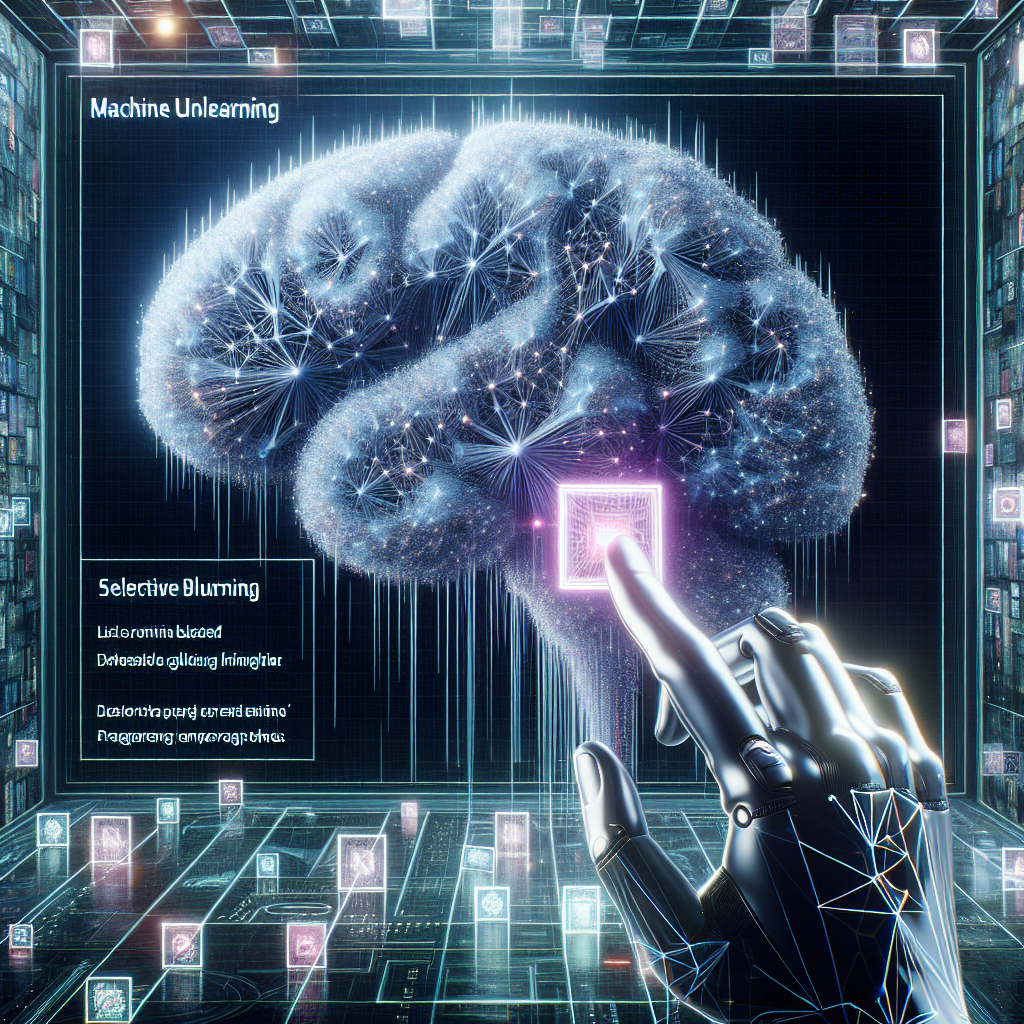Unraveling AI’s Secret Sauce: How ‘Machine Unlearning’ Could Redefine Privacy and Security

Unraveling AI’s Secret Sauce: How ‘Machine Unlearning’ Could Redefine Privacy and Security
Artificial intelligence (AI) is like a sponge: it absorbs massive amounts of information from the data it’s trained on. Models like ChatGPT and Gemini, two heavy-hitters in the AI world, have the uncanny ability to mimic human-like conversation. However, with this incredible power comes a not-so-great feature: the tendency to inadvertently remember sensitive or harmful content. It’s like your AI knows too much and can’t quite keep a secret, which poses significant ethical and legal challenges. So how do you get an AI model, which remembers everything, to forget certain things? Enter the realm of machine unlearning.
The Challenge of Making Machines “Forget”
Picture this: You’ve overstuffed a closet — with too much information — and now you need to take out a specific sweater (say, sensitive data) without causing the entire closet to avalanche on top of you. Machine unlearning is essentially about finding the right way to sneak that sweater out without setting off a catastrophe. Traditional methods of unlearning in AI involve retraining the model or tweaking a mind-boggling number of parameters, which is not only complex but computationally expensive. Plus, these methods have a nasty habit of making the AI forget the wrong things, like categories of data it still needs (think of them as unintentional wardrobe malfunctions).
Enter RAG-Based Unlearning: A New Strategy
Researchers Shang Wang, Tianqing Zhu, Dayong Ye, and Wanlei Zhou have come up with a clever workaround to these issues using something called Retrieval-Augmented Generation (RAG). Instead of diving into the model’s brain (or parameters), their approach involves managing what goes into the AI’s memory — like whispering useful updates into its ear without opening its head.
Here’s the magic: RAG pairs a retrieval system with a language model. When you ask it a question, the retrieval system first fetches the most relevant information from an external knowledge base (like fetching a few key post-it notes from your corkboard). The AI then uses these notes to craft its response. To make forgetting happen, instead of changing internal parts of the AI, you only need to adjust the knowledge base it pulls from. It’s like replacing the post-its with new ones that don’t mention the sweater at all, effectively “forgetting” without altering the underlying structure.
How It Works in Practice
Imagine you’ve trained your AI on thousands of emails, some of which contain sensitive information you now need it to forget. The RAG-based unlearning approach would involve fiddling only with the external knowledge resource instead of retraining the AI model. This means less work and more security — you can effectively put a “memory block” on certain information, making the AI oblivious to it. Even if you ask about the sensitive information, it’ll look at its sanitized post-its and pretend it doesn’t know anything about it. Sneaky, right?
Real-World Applications and Implications
This revolutionary method holds immense promise not just for managing privacy but also for dynamic content control. It’s akin to applying different rules for sharing information in various geographical regions that have diverse regulations on data protection and privacy. You can make your AI speak different “languages” of data privacy according to local laws without having to retrain it for every specific scenario.
Moreover, this could be a game-changer for fighting misinformation and managing copyrighted material. It would be like having a public relations officer who filters out any sensitive or potentially harmful company secrets before the AI speaks. Industries like digital assistants, chatbots for financial institutions, and legal advisory services could thrive using this tech, aligning communications seamlessly with different regulatory standards.
Key Takeaways
- Machine unlearning is crucial for safeguarding sensitive information that AI models might unintentionally retain.
- RAG-based unlearning offers a quick, efficient, and robust method to address this, leveraging external knowledge bases to manage what AI remembers.
- This method excels in universality and simplicity, working across both open-source and closed-source models with minimal computational demand.
- Potential applications lie in fields sensitive to privacy violations, data protection compliance, and the prevention of harmful content distribution.
- RAG-based unlearning allows a model to adapt to multiple contexts or regulatory environments without needing full retraining.
In essence, if AI’s ability to remember is both a gift and a curse, RAG-based unlearning is like having a selective memory eraser — a balancing act that keeps the technology both powerful and safe. Expect to see more AI models adopting this approach as demands for data privacy and ethical standards grow in complexity.
For anyone delving into the world of AI, understanding and utilizing retrieval-augmented frameworks like these could substantially improve the quality and compliance of AI outputs. Whether you’re an AI professional, developer, or an enthusiast, having this trick up your sleeve could significantly improve your prompt engineering methodologies!
If you are looking to improve your prompting skills and haven’t already, check out our free Advanced Prompt Engineering course.
This blog post is based on the research article “When Machine Unlearning Meets Retrieval-Augmented Generation (RAG): Keep Secret or Forget Knowledge?” by Authors: Shang Wang, Tianqing Zhu, Dayong Ye, Wanlei Zhou. You can find the original article here.




